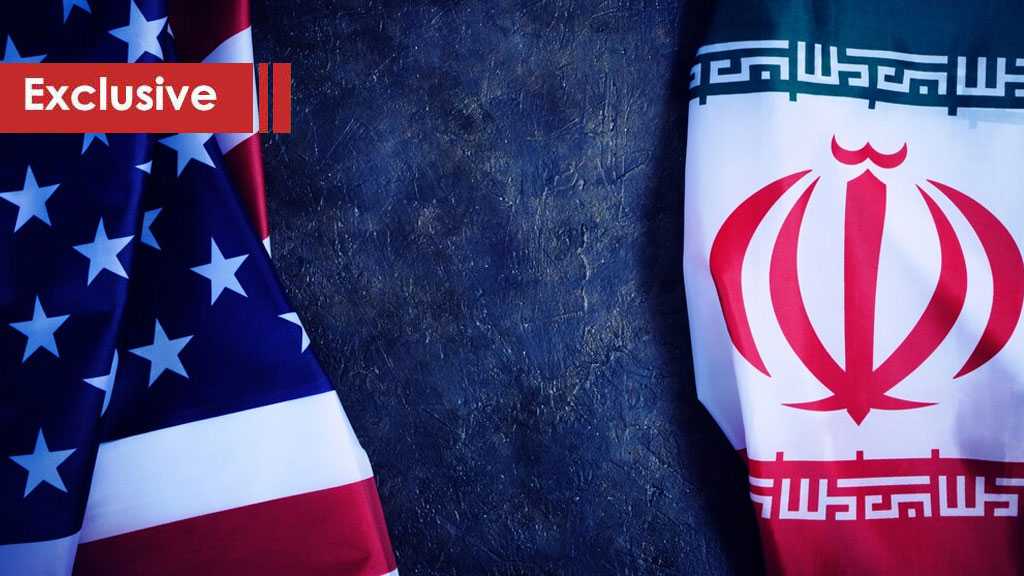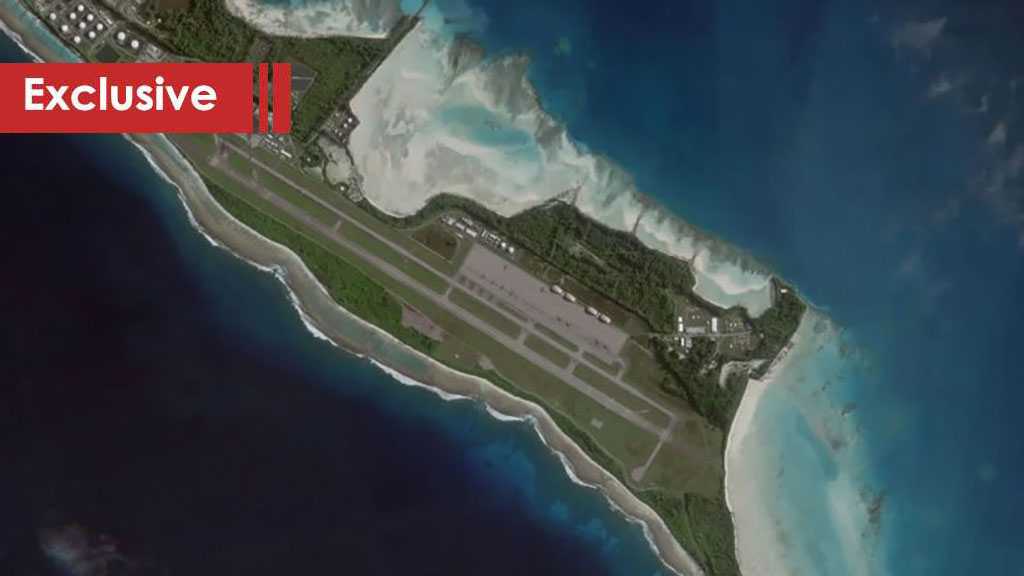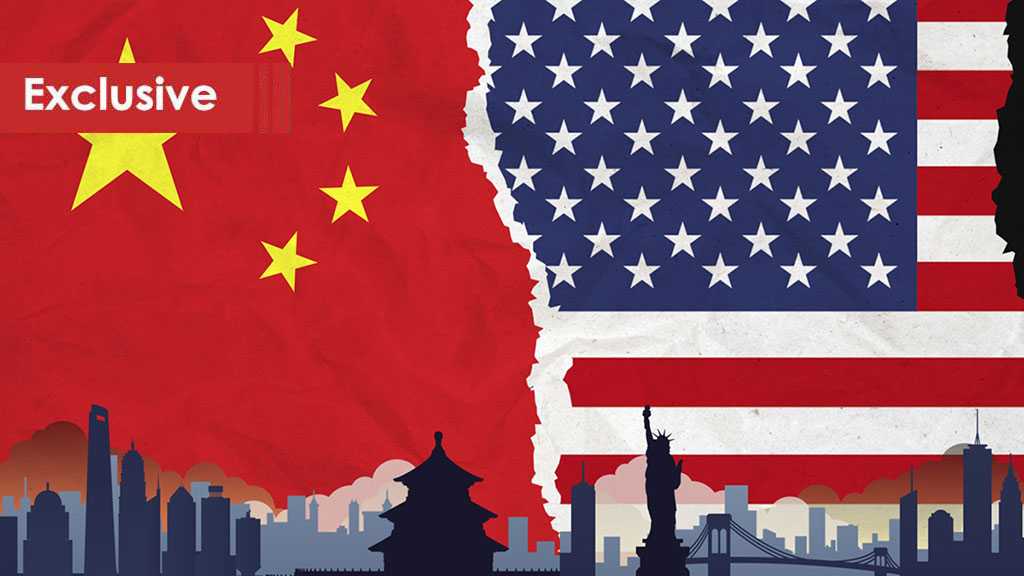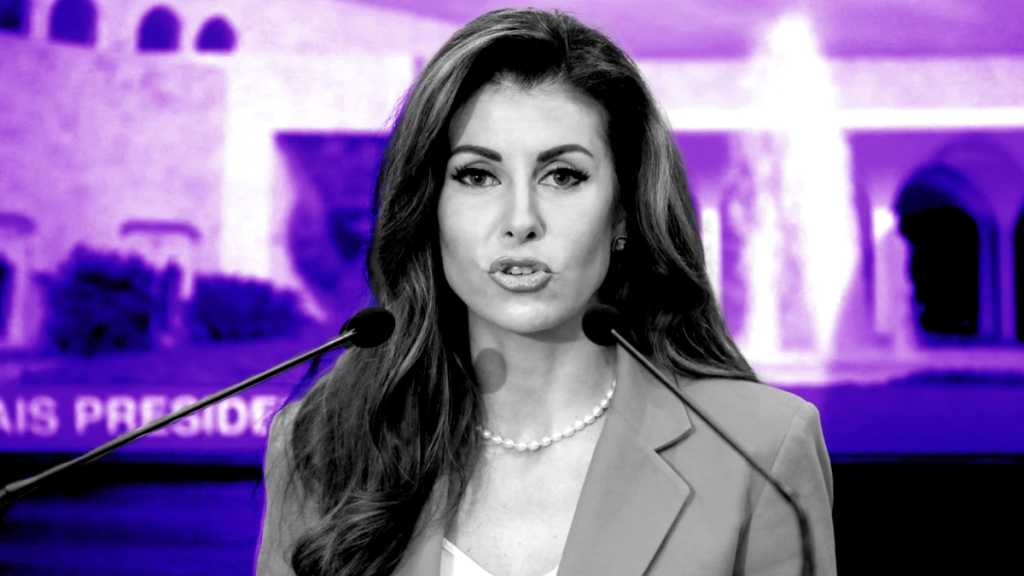
Mandela: ’Terrorist’ While Alive, Giant Leader after Death
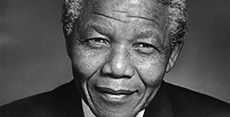
Nour Rida
He was a man who suffered for decades in order to help black South Africans defeat Apartheid. He was a man who believed in resistance, and stressed that resistance springs from popular will and resolve. He was a man who learned from a spiritual leader, and took back home what he had learned.
 He was a political activist and agitator, who did not shy away from controversy and he did not seek universal approval. He only sought to do what is right, and denied anyone from sandblasting him.
He was a political activist and agitator, who did not shy away from controversy and he did not seek universal approval. He only sought to do what is right, and denied anyone from sandblasting him.
Nelson Mandela; he was a man labeled by the US as a terrorist, arrested by the CIA in 1962 and was jailed for nearly 28 years before his release.
In South Africa, Mandela is often known as Madiba, his clan name, or as tata, which means father. He is known as an icon for peace and reconciliation.
When Mandela joined the African National Congress (ANC) in the 1940s, he did so because the organization was dedicated to ending apartheid and oppression prevailing the country.
Under apartheid, blacks and other non-whites were racially separated in every manner possible: education, hospitals, public transport., places of recreation...They were removed forcibly from homes, denied citizenship or a vote; any dissent was violently suppressed by the state, unlike today, where all South Africans are considered equal under the constitution, majorly owing to Mandela.
Inspiring the anti-apartheid movement with his unyielding refusal to accept anything other than complete freedom for his people, Mandela was hardly interested in the "nuts and bolts of governing" and focused bringing people together, ending oppression and apartheid.
This man, who was a freedom seeker, was honored on his memorial December 2013 by people and governments that labeled him as a ‘giant leader' as his soul departed to the heavens. Yet ironically, those same people had labeled him as a terrorist for long years.
Among the most famous reactions to Mandela came from the British Prime Minister Margaret Thatcher in 1987 saying "The ANC is a typical terrorist organization... Anyone who thinks it is going to run the government in South Africa is living in cloud-cuckoo land."
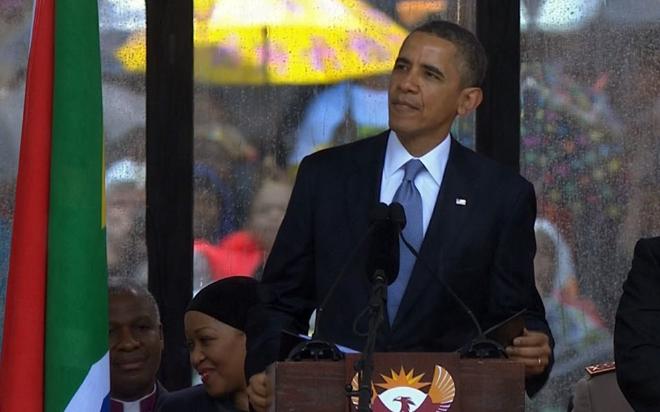
US president Obama, in his speech compared Mandela to Mahatma Gandhi, Martin Luther King Jr and Abraham Lincoln, declaring that the legacy of the leader who defeated apartheid must not be wasted. He even chided leaders who were quick to claim solidarity with Mandela's struggle with oppression and injustice, but did not allow freedom in their own countries.
But looking back at history, Mandela started his anti-apartheid movement, and his name remained on the US terrorism watch list till 2008.
Mandela's major crime was fiercely expressing opposition to what he dubbed as western imperialism. He was forthright and said whatever he had to say, and condemned whatever act he found inappropriate.
Mandela was a peaceful protester objecting racism, until the event that convinced Mandela and other ANC (African National Congress) leaders to take up arms against the government. That was when the regime committed the 1960 Sharpeville massacre, and the police opened fire on black protesters against pass laws, killing 69. Resisting such violence and oppression made world leaders give him the title of "terrorist" at the time he was only acting in self-defense.
"The view of ANC freedom fighters such as Mandela was: We keep on demonstrating, they keep on shooting, We need to respond, fight fire with fire," South Africa's current president Jacob Zuma said on Mandela's memorial on December 14th.
"While the ANC took up arms to intensify its fight against apartheid, that didn't mean the party had abandoned a peaceful bid to end the political crisis," Zuma added on that day.
He said Mandela, who joined the ANC in his early 20s, was able to "combine theory and practice", making it easy for him to practice what he preached.
At the time, Mandela had said "If the government reaction is to crush by naked force our non-violent struggle, we will have to reconsider our tactics. We are closing a chapter on this question of a non-violent policy."
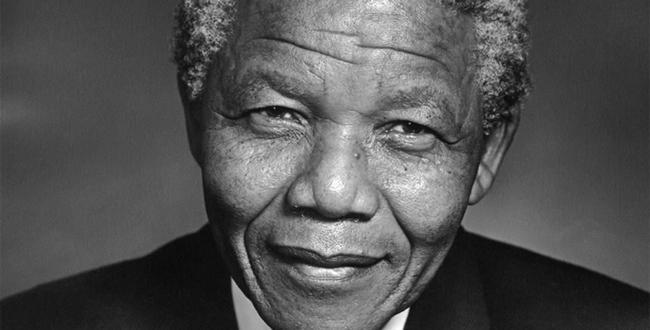
"Even after leaving office in 1999, he remained fiercely outspoken in condemning what he saw as flagrant western imperialism. In 2003 he lambasted the United States and the United Kingdom for "attempting to police the world" over their military intervention in Kosovo in 1999 and the invasion of Iraq, even suggesting that moves to undermine the United Nations were motivated in part by the rise of a black African, Kofi Annan, to the office of secretary general" wrote al-Jazeera's Simon Hooper on December 6th, one day following the decease of Mandela.
He also said that Mandela urged US citizens to take to the streets in protest at moves to attack Iraq, accusing US President George W Bush of wanting to "plunge the world into a holocaust".
"If there is a country that has committed unspeakable atrocities in the world, it is the United States of America, were the words of Mandela," Hooper quoted.
"He stood very firm, he was anti-racist, anti-imperialist, anti-colonialist values. Yes, he would go and do business with the West, but ideologically he would always be first with Castro and independence leaders in Africa..." Hooper further wrote.
Looking at Mandea's history and historic stands; prior to the US invasion of Iraq, Mandela slammed the actions of the US at a speech made at the International Women's Forum in Johannesburg, declaring that former President George W. Bush's primary motive was ‘oil', while adding that Bush was undermining the UN.
"If there is a country that has committed unspeakable atrocities in the world, it is the United States of America. They don't care for human beings," Mandela had said.
Mandela did not hold back from making hard-hitting statements against the US, and repeatedly spoke out against the prospect of the country invading Iraq. As the US prepared its mass-action in 2002, Mandela told Newsweek:
"If you look at those matters, you will come to the conclusion that the attitude of the United States of America is a threat to world peace."
"Israel should withdraw from all the areas which it won from the Arabs in 1967, and in particular Israel should withdraw completely from the Golan Heights, from south Lebanon and from the West Bank," Mandela had stated, according to the Jewish Telegraph Agency's Suzanne Belling.
Mandela derived his inspiration from Imam Khomeini, he had learned valuable lessons from the Islamic revolution and took it back home after he met with Ayatollah Imam Rouhollah Khoemeini in Iran.
Mandela had met Imam Khomeini once. They spoke about the popular revolution in Iran.
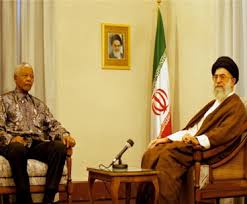 Imam Khoemini had said back then "We talked about the Iranian revolution, and how the Iranian youth had started it. Before the victory of the revolution in South Africa, and right after Mandela was released from prison he visited Iran and I had welcomed him myself in Tehran. I had told him about our experience, and how the people, men and women poured into the streets simple and unarmed. I told him such is an example of a successful revolution and he nodded his head showing consent."
Imam Khoemini had said back then "We talked about the Iranian revolution, and how the Iranian youth had started it. Before the victory of the revolution in South Africa, and right after Mandela was released from prison he visited Iran and I had welcomed him myself in Tehran. I had told him about our experience, and how the people, men and women poured into the streets simple and unarmed. I told him such is an example of a successful revolution and he nodded his head showing consent."
Imam Khomenie had further added "Only two months after Mandela had returned home, news about the huge demonstrations taking to the streets in South Africa made the headlines. I then realized that they reaped the fruits of a popular movement, something they had learned from Iran. They crowded the streets and shouted slogans against the racist government."
Mandela had reiterated that when he met the leader of the Islamic Revolution Sayyid Ali Khamenei in 1999 in Tehran. He said back then that the great Imam Khomeini was not only a leader for the great nation of Iran but he would have been considered as the great guide of the ongoing freedom movement across the globe.
Calling him "the last great liberator of the 20th century," or "a giant for justice," or "a terrorist" does not make a difference, for he was a true seeker of justice and freedom. The only difference these names make, is reveal the true hypocrisy and dual standards of world leaderships and governments. He was a fighter for justice, a leader unyielding to oppression; and he will remain to be one of history's icons of resistance.
Source: Al-Ahed news
